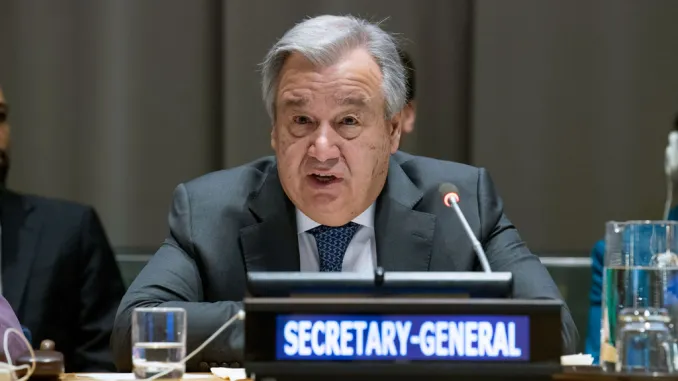The United Nations Security Council has condemned Taliban administration policies in Afghanistan that targeted women and girls.
Within the last week, the Taliban forbade women from attending university and working for non-governmental organizations (NGOs).
The Security Council’s 15 members expressed “grave concern” about the increasing limits on women’s education.
The current limits “must be abolished,” according to UN Secretary-General Antonio Guterres.
The Council called for “full, equitable, and meaningful participation of women and girls in Afghanistan” in a statement.
It asked the Taliban to “reopen schools as soon as possible and rapidly reverse these policies and practices, which represent an increasing degradation of respect for human rights and fundamental freedoms.”
The restriction on female aid workers “would have a severe and immediate impact on humanitarian operations in the nation,” including the UN, according to the statement.
Mr Guterres stated that the latest limitations were “unjustifiable human rights breaches”.
“Actions to exclude and silence women and girls continue to cause immense suffering and major setbacks to the potential of the Afghan people,” he wrote on twitter.
At least five major non-governmental organizations (NGOs) have ceased operations in Afghanistan after the Taliban regime prohibited women from working for them.
Care International, the Norwegian Refugee Council (NRC) and Save the Children warned they could not continue their work “without our female personnel”.
The International Rescue Committee has likewise ceased operations, and Islamic Relief has said that it will cease most of its operations.
Last week, the Taliban arrested five women who were protesting the restriction on female education in Kabul, Afghanistan’s capital. Three journalists have also been detained.
Since retaking control of the country last year, the Taliban have increasingly reduced women’s rights, despite pledging a kinder administration than the one seen in the 1990s.
In addition to the bans on NGO workers and female university students, which are being enforced by armed guards, most provinces still have shuttered secondary schools for girls.
Women have been barred from attending parks, gyms, and other public venues.









